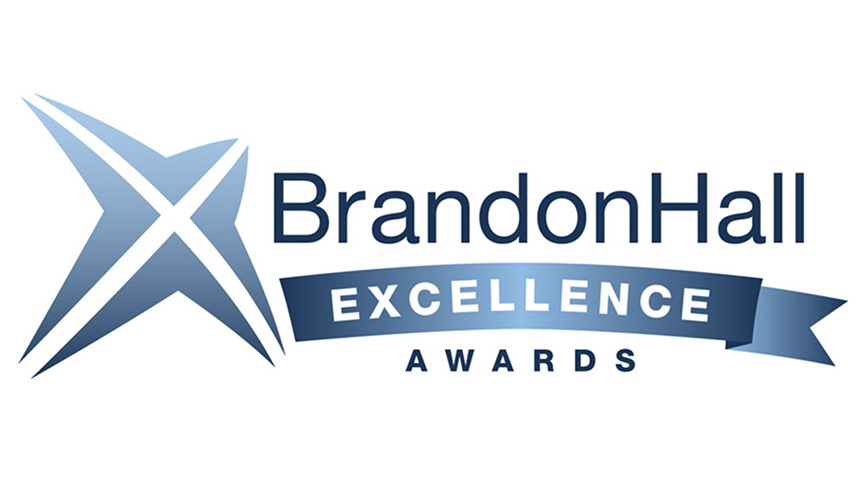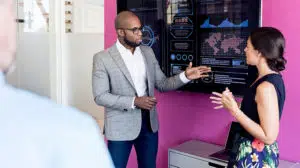What is social identity, and why is it important? Learn how understanding social identity is necessary and helpful for leaders of the workforce of today and tomorrow.
Equity, Diversity & Inclusion
Home > Your Leadership Challenges > Equity, Diversity & Inclusion (EDI)
Moving From Ideas Into Action on EDI
Shift mindsets, behaviors, and practices so everyone in your organization attains their full potential.
Multiple studies have proven that diverse teams drive better business performance and organizations with greater diversity become more resilient and innovative. And inclusion is required for diverse groups to thrive.
Yet there’s little point in considering how to recruit a more diverse workforce, nor how to ensure talented individuals from different backgrounds are fully included, if your organization has not yet considered what different people need to be successful. And to do that, you need to understand equity.
Equity is fair and contextually appropriate access to the resources required for an individual to attain their full potential.
To see real, sustainable change, and to leverage the full potential of all their talent, organizations must go beyond diversity and inclusion to focus on equity, diversity, and inclusion in the workplace.
Leading with equity is about recognizing that different people have different needs and being committed to giving people what they need to succeed. When that happens, everyone wins.
Our EDI Training & Solutions Can Help Shift Your Culture
No one single solution can create equity, diversity, and inclusion in the workplace, so we offer a variety of EDI training solutions and bring our decades of human-centered expertise and understanding of intergroup challenges (social identity, outgroups, discrimination, and privilege) to this work. We are ready to partner with you to craft custom EDI solutions for your organization’s specific needs, context, and culture. In addition, we also offer women’s leadership development solutions.
We can work with you to create a human-centered, research-based equity, diversity, and inclusion (EDI) training program that’s tailored to your needs. Partner with us to understand the dynamics of EDI in your particular context and identify specific actions to take to drive real results at your organization.
Powered by decades of our global research and in-the-field experience, our world-class EDI training solutions can help you build a stronger organizational culture and equip your leaders to work together more effectively.
Let us craft a custom initiative for your leaders at all levels for that builds greater equity, diversity, and inclusion in your workplace.
Whether you want your team to communicate more effectively across differences, align behaviors with beliefs, or address unconscious bias, this program can equip everyone at your organization have constructive, respectful dialogue with one another.
We can partner with you to leverage conversational skills training to improve the quality of dialogue across your organization through a lens of building a more equitable, diverse, and inclusive culture.
- Scale a more inclusive, psychologically safe culture of feedback to leverage the power of diversity
We can help you move beyond bias by equipping your team to identify the unintentionally harmful beliefs and practices that undermine equity, diversity, and inclusion in the workplace and at your organization.
We also offer a variety of other world-class leadership topic modules you can use to upskill your team or package together into a custom EDI training solution.
Offerings include our proven content on emotional intelligence, listening to understand, psychological safety, and more. We can deliver these world-class, research-based leadership topic modules — or you can. Either way, you’ll be taking meaningful action on supporting and driving EDI at your organization.
Enact Equity, Diversity & Inclusion in the Workplace: REAL™
Our REAL™ Framework Shows You How
We understand that EDI can be complex, and addressing systems of oppression is challenging. That’s why we created our evidence-based REAL™ framework to help shift mindsets, behaviors, and practices toward more equitable and inclusive leadership for individuals, teams, and organizations.
It focuses on helping leaders make the leap from raising awareness to taking meaningful action and driving sustainable culture change to support equity, diversity, and inclusion in the workplace.
Our REAL™ Framework for Increasing EDI
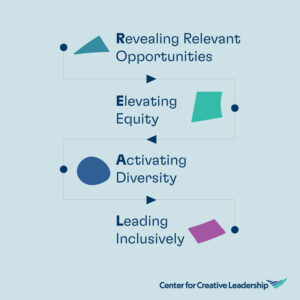
- Reveal Relevant Opportunities
Identify specific actions with curiosity and appreciative inquiry. - Elevate Equity
Prioritize fair and contextually appropriate access to resources and opportunities — establishing a meaningful difference between EDI vs. DEI. - Activate Diversity
Acknowledge, celebrate, and catalyze different characteristics, values, beliefs, experiences, backgrounds, and behaviors. - Lead Inclusively
Intentionally create and sustain an environment that supports direction, alignment, and commitment from everyone in your organization.
What Our Clients Are Saying
At CCL, we measure success by lives touched and impact made. That’s why the organizations we work with and the leaders we transform consistently tell us the same thing: their experience with us is a game-changer. We’ve helped strengthen organizational cultures through EDI training that builds equity, diversity, and inclusion at many organizations.
But don’t just take our word for it — take theirs.
Among hundreds of international applicants, 2 EDI-focused leadership programs that we developed for separate clients have both received awards from the research and analyst firm Brandon Hall Group, in their acclaimed annual Human Capital Management (HCM) Excellence Awards.
“I love the networking experiences, practical tools, and the bonds I was able to build with my fellow participants. I was able to utilize some of the tools I have learned in my daily work. It’s been a great experience and by far the best training program I have attended.”
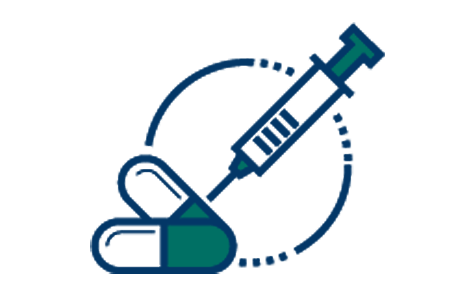
Our Commitment to Equity, Diversity & Inclusion at CCL
We know that a true commitment to equity, diversity, and inclusion in the workplace starts from within. At CCL, we’ve made a concerted effort to focus on EDI internally, and realize there is more work yet to be done. Learn more about our EDI journey and commitment to racial justice and equity.
Meet Our EDI Team

Lynn Fick-Cooper, MBA
Chief Equity & Societal Impact Officer
Lynn leads teams across the Americas, Europe, and Africa that design and deliver leadership solutions for social sector organizations focused on K–12 and Higher Education, Nonprofits, and Population Health; social sector research and evaluation; fundraising; and program operations. She’s also Executive Sponsor of our Equity, Diversity & Inclusion Practice.
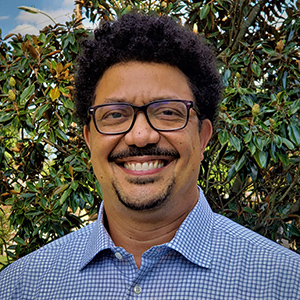
Michael DePass, MBA
Vice President of Equity, Diversity & Inclusion (EDI)
As leader of our global EDI practice, Michael combines his extensive professional experience and passion for social change with his gifts for strategic leadership, innovative thinking, and business development. Previously, he served as director of our K–12 education portfolio, designing and delivering transformative educational leadership development. He has worked as a management consultant and at several international development organizations.
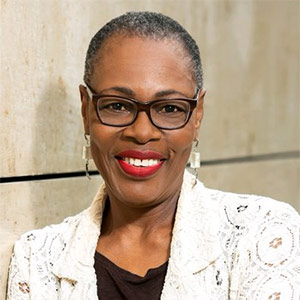
Abigail Dunne-Moses, MEd
Senior Fellow
Abigail is a trusted leadership advisor with 20+ years of experience in performance management training, leadership training, organizational development consulting, and nonprofit leadership development. As a business-minded change agent, she has advised many Fortune 500 companies on how to build and sustain equity, diversity, and inclusion initiatives.

Regina Eckert, PhD
Client Engagement Director, Europe
Gina is a consultant, facilitator, and leadership development expert who has led projects in over 40 companies across the EMEA region in various industries, ranging from 60 to 1.6 million employees. She keeps a high focus on tangible behavioral and business impact and a deep care for the people who trust her for their development and the development of their companies. Initiatives around equity, diversity, and inclusion are an area of expertise and passion for her.

Kanya Govind
Head of Client Engagement, Middle East & Africa
With over 25 years of experience managing full-life-cycle learning and development, Kanya works with organizations to identify, understand, and implement specific and measurable learning needs — leading to tangible retention, diversity, and performance results. Her experience spans across IT / IT-enabled services and consulting industries across various sectors and geographies. Initiatives around EDI and coaching are her passions.

Jayke Hammill, MA
Senior Faculty, Societal Impact and Equity, Diversity & Inclusion
Jayke designs and facilitates leadership development programs with nonprofit organizations, grassroots community leaders, foundations, and educators. Jayke has worked alongside clients and communities to create spaces that foster equity, diversity & inclusion, supporting leaders in advancing racial equity, building advocacy pipelines for disability rights, and strengthening networks among LGBTQ leaders.
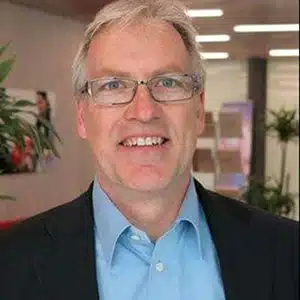
Patrick Sweet, PhD
Senior Client Engagement Director
Patrick leads client partnerships and initiatives to design and deliver leadership development strategies and programs aligned with client enterprise strategy. For 5+ years, Patrick has led an Alliance between CCL and the Geneva Centre for Security Policy, focusing on leadership in multinational and multicultural challenges.

Charlene Tan, MA
Leadership Solutions Associate Director
Charlene delivers custom programs designed to engage and empower leaders in the Asia-Pacific region, working cross-functionally with teams in EMEA and the Americas. An advocate for EDI and women’s leadership, she brings more than 10 years of experience with a strong focus on developing leaders, teams, and individuals through a human-centric approach of analyzing, diagnosing, and creating customized solutions across different industries and countries.
Meet Our EDI Research Faculty
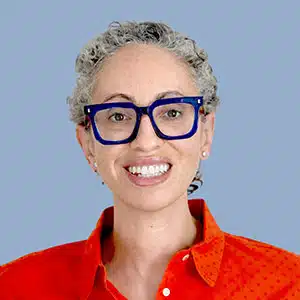
Marcia Dawkins, PhD
Senior Research Scientist
Marcia is a leading expert in equity and strategic communication. At CCL she translates research to all audiences through media; infuses Equity, Diversity & Inclusion into research strategy; and leads projects that find new connections and synergies between ideas and data-driven solutions. She has published research on how social identity, technology, and creative culture are changing who we are and how we work.
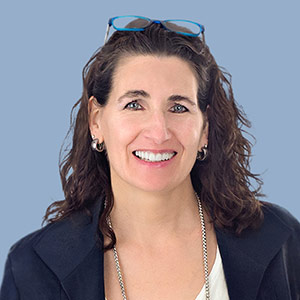
Diane Bergeron, PhD
Senior Research Scientist
A social psychologist with over 15 years of experience, Diane is a researcher with expertise in executive education and consulting. At CCL, she conducts research and provides subject matter expertise in the areas of women and leadership, the gendered assessment of workplace helping behaviors, leader listening behaviors, and employee voice.
Let’s Talk About Building Equity, Diversity & Inclusion at Your Organization
Our experts are here to help. Get in touch with us about your organization’s EDI training initiatives and needs. We’d love to partner with you!
Equity, Diversity & Inclusion in the Workplace: Research & Resources
Are the pledges and promises made by your organization cosmetic platitudes, or authentic commitments to sustainable action? Learn best practices for an EDI statement and approach based on our research findings.
Watch this webinar to learn the challenges facing and key tips for supporting Chief Diversity Officers and HR leaders with DEI roles or responsibilities.
Is your organization wondering where to start with DEI training? Learn 5 ways to infuse your leadership and culture with greater diversity, equity, and inclusion.
Sustainable workplace culture change towards greater equity, diversity, and inclusion (EDI) requires a serious commitment across all levels of an organization. Learn how to take a systemic approach to EDI.
Learn strategies to tackle diversity and inclusion challenges and avoid the most common mistakes in your organization’s DEI efforts.
More About Equity, Diversity & Inclusion
Leading With Equity & Why It Matters
Elevating equity is critical because even in organizations that are both diverse and inclusive, individuals who come from different backgrounds can still run into policies, practices, or assumptions that prevent them from being fully engaged, supported, and able to reach their potential.
That’s why rather than DEI (diversity, equity, and inclusion), at CCL, we refer to EDI — placing equity as the first consideration in EDI training, before diversity and inclusion, to emphasize its importance.
When it comes to EDI vs. DEI, without a focus on equity, well-intentioned diversity initiatives can appear disingenuous. Ensuring your organizational practices and policies are equitable is essential to the sustainability of your investments in diversity and inclusion — and your ability to retain top talent.


Our History of EDI Training and Research
At CCL, our approach to equity, diversity, and inclusion is rooted in decades of pioneering work with leaders and organizations around the world — from our groundbreaking research into women’s leadership development, to our African-American Leadership development program, to our deep analysis of what different generations want from work.
Through it all, we’ve learned that when it comes to equity, diversity, and inclusion in the workplace, language, challenges, norms, and solutions shift based on context, culture, and climate. Above all, leaders must consider people’s different lived experiences to help their teams achieve their full potential.
Frequently Asked Questions About Equity, Diversity, and Inclusion
EDI is an acronym that stands for equity, diversity, and inclusion. In the workplace, EDI relates to actions taken in order to shift mindsets, behaviors, and practices toward more equitable and inclusive leadership for individuals, teams, and organizations.
You may hear references to both the terms DEI and EDI when discussing diversity initiatives. While both of these acronyms describe the concepts of diversity, equity, and inclusion, at the Center for Creative Leadership (CCL)®, we prefer to use the term EDI because it places equity before diversity and inclusion. We believe that without equity, efforts to promote diversity and inclusion are not sustainable. So when it comes to DEI vs. EDI training, we recommend that organizations re-orient their DEI training efforts as EDI initiatives, to emphasize the importance of pursuing greater diversity and inclusion only after investing in a culture of equity as the foundation.
At CCL, we believe that without equity, efforts to promote diversity and inclusion are well-intentioned, but unsustainable. We emphasize the importance of starting with equity to support diversity and inclusion, and we use our evidence-based REAL™ framework to help organizations understand the dynamics of diversity, equity, and inclusion within their unique context.
Equity, diversity, and inclusion training, or EDI training, is an organizational change initiative designed to move participants from building awareness to taking actions that shift mindsets, behaviors, and practices toward a more equitable and inclusive leadership culture for individuals, teams, and organizations. At CCL, we believe that sustainable and lasting workplace culture change for EDI requires a systemic approach.
More questions? Our experts are here to help. Let’s have a conversation!
Related to Equity, Diversity & Inclusion (EDI) Training
Get Our Latest Updates
Subscribe to our email newsletters that highlight our latest research-based articles, products, programs, and more to help you strengthen your leadership skills.
